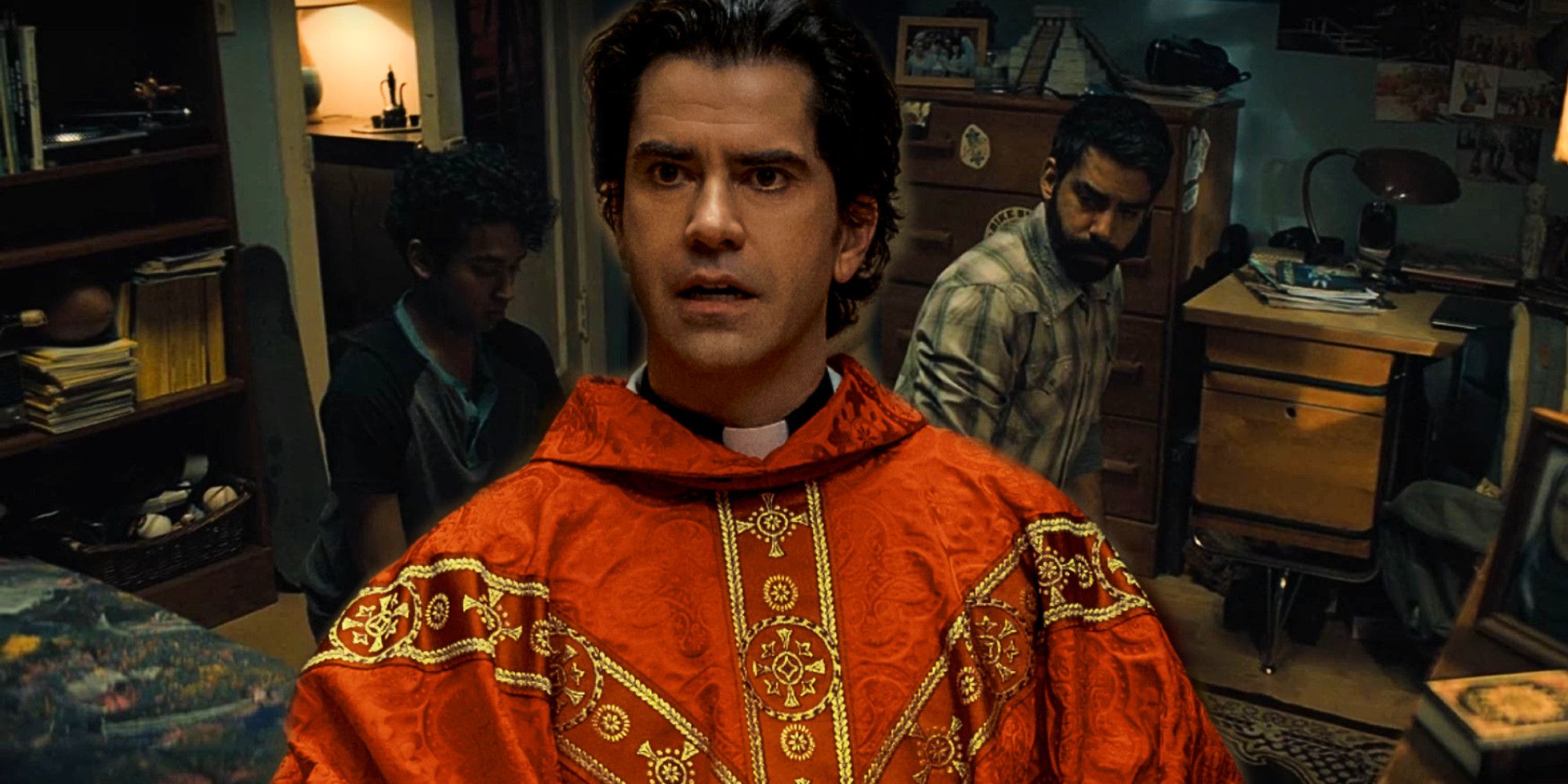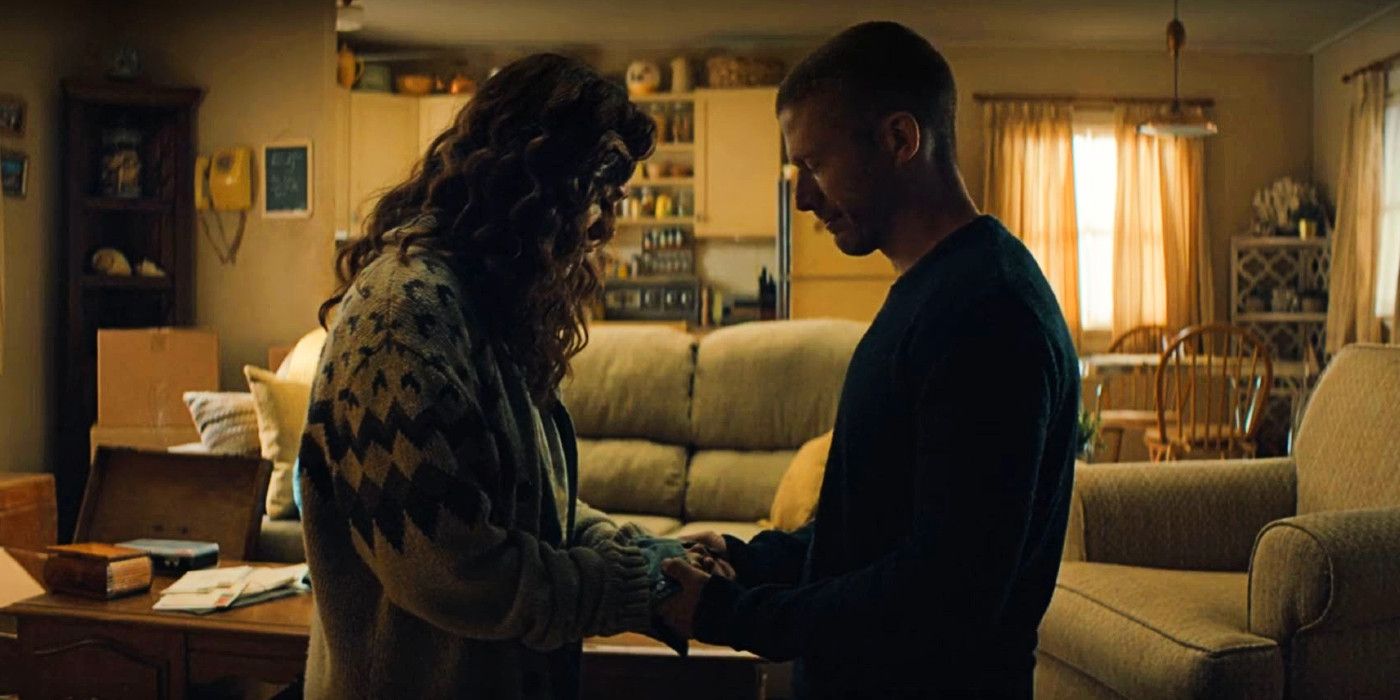Warning: This post contains spoilers for Midnight Mass.
Netflix's Midnight Mass delves into a whole range of poignant themes and even perfectly depicts a universal truth at the heart of religion. Following fellow Netflix horror series The Haunting of Hill House and its follow-up, The Haunting of Bly Manor, Midnight Mass comes from writer/director Mike Flanagan. Set on the fictional Crockett Island, the series explores a different genre of terror as its residents fall prey to a vampire-like monster mistaken for an angel and a renewed religious fervor. Both are unleashed upon the island by Father Paul Hill/Monsignor Pruitt (Hamish Linklater) and contribute to a tense and bloody conclusion.
Along the way, Midnight Mass touches on a host of important topics, including addiction, grief, remorse, redemption, and even the meaning of life. Principally, Mike Flanagan's passion project tackles the nature of religion and faith. He does so from a whole variety of different angles, from reborn atheist Riley Flynn (Zach Gilford) and zealous Catholic Bev Keane (Samantha Sloyan) to Muslim father and son Sheriff Hassan (Rahul Kohli) and Ali (Rahul Abburi). In the process, Mike Flanagan (who cameos as a priest) offers oft-overlooked wisdom that captures the true essence of spiritual belief and how it manifests.
The wisdom comes as Riley reckons with his alcoholism and attends his first AA meeting with Father Paul. During this, the charismatic priest imparts that alcohol in itself is neither good nor bad. Instead, it's only when in the hands of an individual does the needle shift one way or another. Though the particular point is never directly stated, Midnight Mass nonetheless emphasizes that it remains equally true of religion. After all, regardless of which faith is practiced, it, too, is an abstract construct. Religion is only ever as good (or bad) as the individual that takes it to heart, be it in Midnight Mass book-titled episodes or in real life.
Religion didn't make Sheriff Hassan, Erin Greene (Kate Siegel), Midred Gunning (Alex Essoe), and others into the good people and sacrificial heroes that they ultimately are. Their faith only reinforces their already innate sense of compassion and kindness, rather than fuelling it. They don't need the lessons of The Bible or The Quran to teach them how to be, they simply confirm that the way they lived their lives was one of nobility and dignity. And their faith gives them the strength to maintain that course in the face of hostility and much worse. As Ed Flynn (Henry Thomas) says when most of Midnight Mass's cast of characters are turned into vampires, it doesn't change who you are at your core. Once again, the same goes for religion.
That is most emphasized by the opposite example embodied by the aforementioned Bev Keane. Whether it's poisoning a harmless dog or her generally racist and close-minded attitudes, it's increasingly evident that she's not a good person. While she may be too delusional to see it, it's equally clear that, for her, religion is just a convenient mask for those failings. Worse still, the words of The Bible exist merely to be twisted, so as to allow her a way to justify her increasingly heinous actions. The same can be said for several other residents of Midnight Mass' Crockett Island, whose blind following of Pruitt and then Bev belies their own weaknesses and moral failings, rather than serves as an indictment of religion itself.
Another pivotal scene that captures a frequently missed essence of religion is the PTA meeting. As much as Bev refuses to see the point, Sheriff Hassan respectfully highlights the hypocrisy of religious division. Through that character - and the kind of research most gloss over with Muslim representation - Mike Flanagan points out that, oftentimes, different religions are two sides of the same coin. Though the practices and some of the scriptures may differ, the core meanings aren't necessarily so. For better or worse, Midnight Mass shows that faith and religion are but mirrors, and what manifests is based on the person, not texts.


